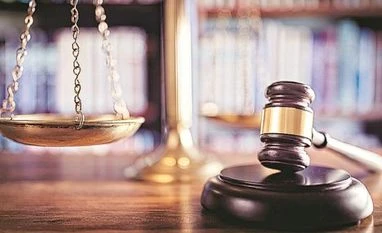Targeting the Congress, BJP chief Amit Shah Wednesday said judicial procedure was 'influenced', which led to no convictions for so long in the 1984 anti-Sikh riots.
The Delhi High Court Monday sentenced Congress leader Sajjan Kumar to imprisonment for life, the first conviction of a politician in the 1984 riots in which over 2,700 people were killed.
"The judicial procedure was influenced which led to no convictions in the anti-Sikh riots of 1984. It made people furious over the issue even after 34 years of the incident," Shah said at the Republic Summit here.
He said the NDA government set up another Special Investigation Team (SIT) after coming to power in 2014 and the convictions are taking place as per this body's findings.
"This (Sajjan Kumar) is the fourth judgement that has come out," Shah pointed out.
Despite there being the Misra Commission followed by Nanavati Commission, police did not carry out investigations properly in any case, Shah said.
Referring to allegations of a journalist that he had seen Madhya Pradesh Chief Minister Kamal Nath leading a march against Sikhs (during riots), Shah said, "It has been seen by many people. The SIT is looking into all cases related to 1984 anti-Sikh riots."
"I believe the SIT we have set up will take the cases of 1984 anti-Sikh riots to their logical end. And we have made all provisions to equip the SIT," the BJP leader said.
Asked about the time required for the legal battle over the Ram temple issue to get over, Shah said, "If the Supreme Court conducts daily hearings of the Babri demolition case, it will not take more than 10 days to get a verdict." "Ayodhya is a title issue. The BJP clearly states that we want to build a temple on the same site. The case was pending before the SC much before 2014. We have requested the court to clear the case and complete its hearings at the earliest," Shah said.
Countering senior Congress leader and lawyer Kapil Sibal's demand for conducting the case hearing after the 2019 elections, he said, "I feel the case should be cleared at the earliest. Whatever decision SC wants to take, they should take it at the earliest."
On not following the Supreme Court's verdict in the Sabarimala temple case, he said Sabarimala is related to religious faith and that "in some cases, there is no need for a judicial review."
When one goes to a gurudwara (a religious place of Sikhs), one has to cover the head with a cloth, he said.
"The god (Lord Ayyappa) is believed to be unmarried.
It is the belief of locals. Why do you need a judicial review here. Here it is not about equal rights of men and women," Shah said.
He said there are 12 temples in the country where men are not allowed inside. "Does it mean it is an injustice to men," he said.
"If you are talking about equal rights for men and women, Hindus in this country have carried out so many social reforms on their own and without any order," he said.
"The entire country rejected the 'Sati' pratha (a Hindu practice whereby a widow immolates herself on the funeral pyre of her husband) and child marriage while it accepted the Dowry Prohibition Act and the Hindu Widows' Remarriage Act. No one ever raised voice against it," he said.
All these decisions were taken in order to protect women's dignity, Shah added.
"There are many court decisions which cannot be followed, like ban on putting up loudspeakers on mosque or ban on Jallikattu; who is following it? In such decisions, let people decide about their beliefs. This should not be brought in judicial review, is my personal opinion," he said.
Terming the triple talaq bill as a "social reform and not a religious issue," he said even Pakistan does not allow triple talaq to women. There are many Islamic countries where triple talaq is banned, he said.
"We have brought the bill in Parliament and we will go ahead with it. It is up to the opposition to show whether they want to support Muslim women or oppose it," Shah said.
Unlock 30+ premium stories daily hand-picked by our editors, across devices on browser and app.
Pick your 5 favourite companies, get a daily email with all news updates on them.
Full access to our intuitive epaper - clip, save, share articles from any device; newspaper archives from 2006.
Preferential invites to Business Standard events.
Curated newsletters on markets, personal finance, policy & politics, start-ups, technology, and more.
)